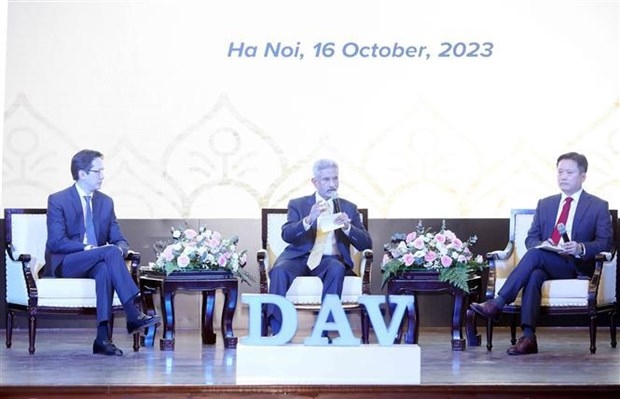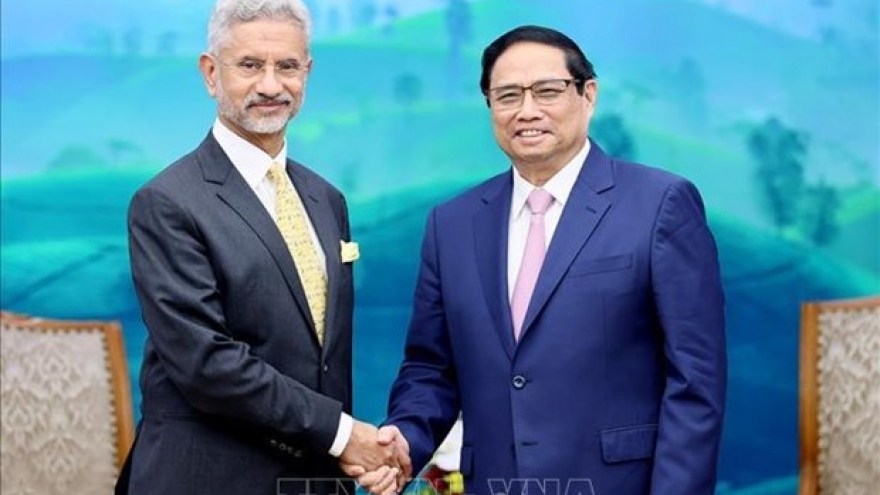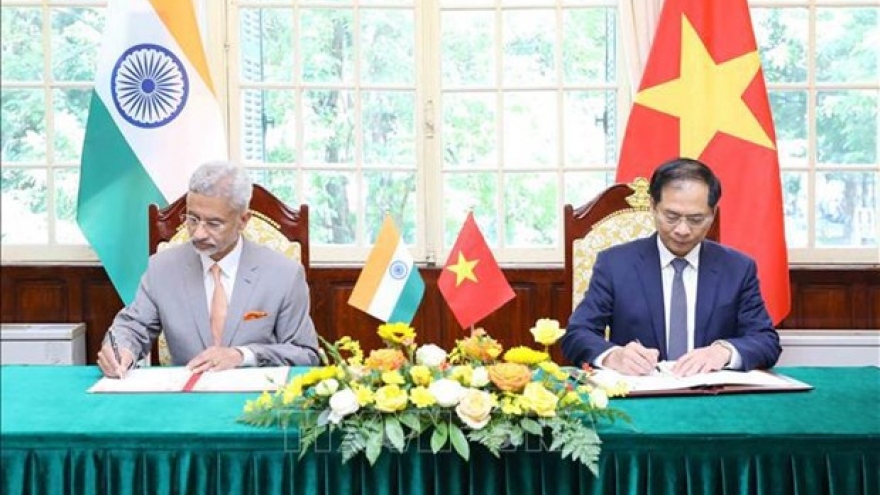Vietnam, India should strengthen traditional cooperation areas: Indian FM
Vietnam and India need to enhance traditional areas of cooperation while promoting economic and health collaboration, and responding to common challenges in the region and people-to-people exchanges, especially the younger generation, said Indian Minister of External Affairs Subrahmanyam Jaishankar on October 16.

He made the remarks at a dialogue with Vietnamese research agencies and representatives of staff and students of the Diplomatic Academy of Vietnam (DAV).
Vietnam and India are important security and energy partners of each other, with two-way trade reaching more than US$15 billion and they both actively support regional and global multilateral mechanisms, he said.
In his speech, the Indian Minister noted the Association of Southeast Asian Nations (ASEAN) plays a key role and acts as a bridge between the Indian and Pacific Oceans, so ASEAN and India have many prospects for cooperation to help connect the two oceans.
He went on to say that to respond to major challenges such as natural disasters, climate change, racism, terrorism, maritime security issues, and new technological challenges, India has actively participated in many cooperation mechanisms, notably the Quad, the Indo-Pacific Economic Framework for Prosperity (IPEF) and cooperation to raise maritime security awareness.
The Indian diplomat said that India has announced the Indo-Pacific Oceans Initiative (IPOI) to promote regional cooperation on the blue economy, solar energy, response to climate change, and decarbonisation. He shared India's vision of building a globalised world that is fairer, more equal and more connected.
For his part, Deputy Foreign Minister Do Hung Viet emphasised the similarities between the two countries in history, culture, religion, and common aspirations for a peaceful, stable and inclusive region, taking ASEAN as the centre and respecting international law.
Viet said he believes that Jaishankar's visit to Vietnam will open up many new opportunities for bilateral cooperation between the two countries, promoting in-depth exchanges between policymakers, scholars and people from all walks of life, especially the young generation, of the two countries.


